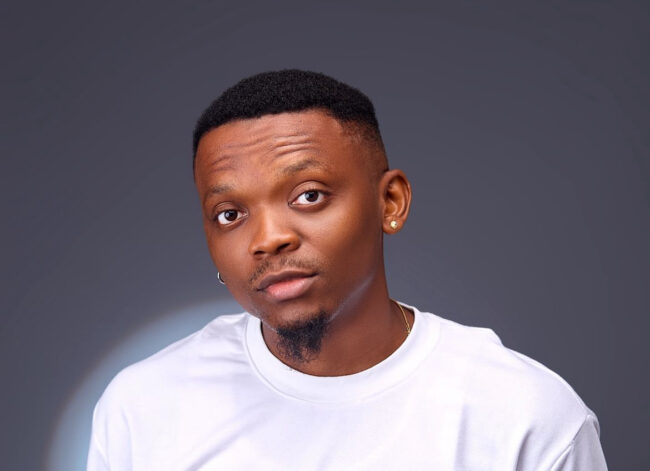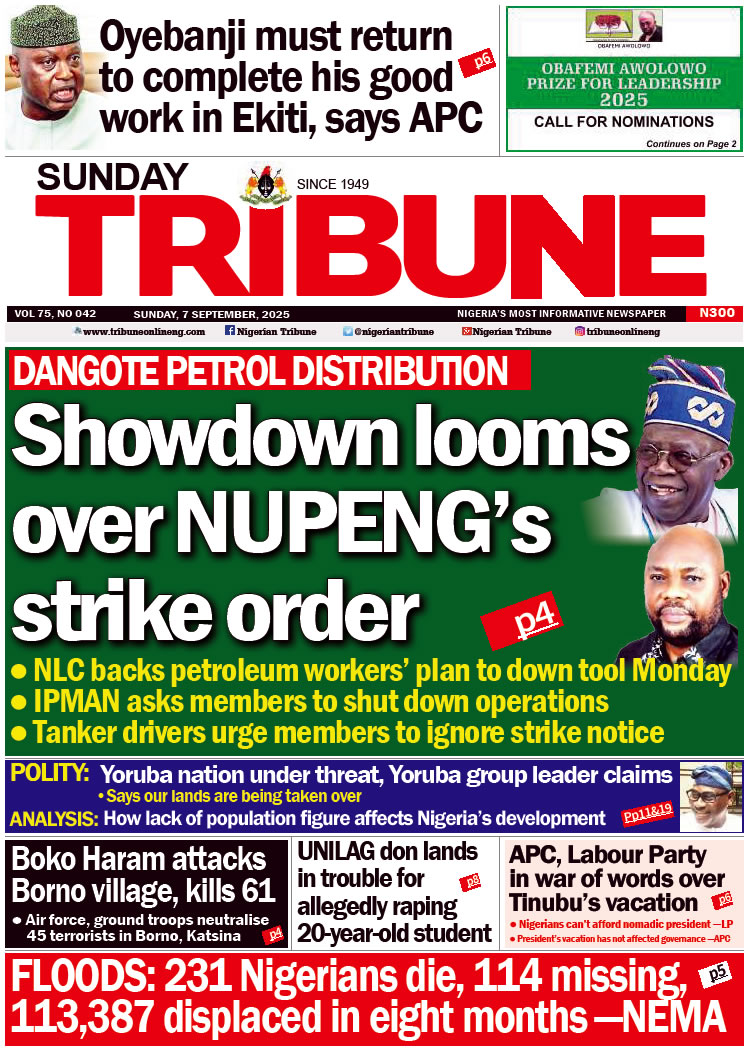Opeyemi Onaifo, better known as Speedope in the entertainment industry, is one of the most sought-after celebrity lifestyle videograhers from Nigeria. His company, DopeViews ( @dopeviewsonly) has worked with Kiekie, Asake, Wizkid, Burnaboy, Toyin Abraham, among others and focuses on capturing cinematic and authentic visuals that tell compelling stories. Formerly a professional dancer, the Edo State graduate of Mass Communication, tells ROTIMI IGE how he evolved from dancing to visual storytelling.
You were formerly a dancer. How did your interest in videography start?
Dance taught me the power of movement and how it connects emotionally with people. I have always loved videography, which made it easier for me to edit most of my dance team’s (the xpandables) videos. I usually shot the behind the scenes footages for people and also edited for other dancers too. I realised that I wanted to capture those same emotions visually, so I transitioned into videography. It gave me the freedom to direct how stories are told, and that’s how my love for crafting cinematic visuals began.
When/how did you get your big break?
It came when I became Kiekie’s official videographer, which exposed me to working with key figures in the Nigerian entertainment industry, such as Toyin Abraham, Swanky Jerry, Wizkid, Burnaboy, Asake, Toke Makinwa, Omolola Jolade Ekehinde, HushD, Dang, Tomike, The Library, Circa, Yhemolee, Diadem, NottingHill Carnival 2023 (United Kingdom), UK Amapiano event, Idia Aisen, lyabo Ojo and many more. Those collaborations opened doors for me, and soon after, I was doing commercial projects with brands like Pepsi, TikTok Nigeria, RadissonBlu, Hush’D, First Bank, Johnny Walker, Dstv and many more. Those moments really pushed DopeViews into the spotlight.
DopeViews is now a household name in Nigeria and the United Kingdom. What stands you out as a content creator?
What sets DopeViews apart is our commitment to authentic storytelling. The fact that I use to be a professional dancer also makes my editing stand out. We don’t just focus on the aesthetics but aim to create visuals that resonate emotionally. Every project, whether it’s for an artiste or a brand, is about crafting an experience that feels real and intimate. We put a lot of focus on the narrative behind the visuals, which I believe is why we stand out.
Most people start with photography. Why did you decide to focus on shooting and now creating content for celebrities?
Photography is amazing, but for me, videography allows for more depth in storytelling, I love music a lot but sadly I can’t sing to save my life (smiles), so having to add music to my footages just make sense to me. It’s not just about capturing a moment but about creating a sequence of emotions. Working with celebrities adds another layer of excitement because their energy is infectious, and that’s something I love translating into visual form.
What does it take to carve a niche in your industry?
Consistency, innovation and staying true to your style are key. It’s important to understand what you bring to the table and perfect that craft. At DopeViews, we’ve carved a niche by focusing on cinematic and authentic visuals, which keeps our work distinct. You also have to keep evolving—staying up to date with industry trends while still maintaining your unique voice.
You are holding a masterclass in Lagos for aspiring videographers, what is the reason for this?
I believe in the power of passing on knowledge. When I was starting, there weren’t a lot of people having class like this to learn from in terms of videography,so I want to change that. A lot of people have the vision but don’t know where to begin. While this masterclass is tailored for videographers, it’s also perfect for beginners or enthusiasts. The hardest part is often getting started—and staying consistent. In this masterclass, we’ll guide you through both. You don’t need fancy gadgets like drones or gimbals to get started; a simple phone is all you need. The masterclass is about helping the next generation of videographers refine their craft and find their own voice in the industry.
You’ll receive one month of personalised mentorship, helping you apply what you’ve learned, stay on track and continue growing your skills.
Now that AI is becoming a thing especially in the creative industry, do you see this as a challenge and how can it be overcome?
AI is definitely a game changer, but I don’t see it as a threat. It’s more of a tool that can enhance what we do, particularly in post-production. However, AI can’t replicate the human element and creativity that come from being behind the lens. The challenge is to integrate AI without losing that authenticity, and I think that’s the future of the industry.
When was your most embarrassing moment on the job?
The one I can remember vividly has to be the first day I used a Sony camera to shoot and this is because I started my videography journey with an iPhone. I got to this client’s house with full confidence with the camera not knowing that there is different setting for shooting indoor and shooting outdoor. Thank God she wasn’t a first time client. It was embarrassing.
What challenges do you still face in Nigeria?
Infrastructure is still a big challenge—constant power outages and slow internet can make working on deadlines stressful. Then there’s the issue of access to the latest equipment, which is either too expensive or difficult to get here. But we’ve learned to adapt, and that’s part of what makes the creative industry in Nigeria so resilient.
What’s next for you?
We’re looking to expand internationally and bring more African stories to a global audience. There’s a lot of untapped potential in our culture that the world hasn’t seen yet. So, more documentaries, more creative campaigns, and hopefully more projects that break boundaries.
What do you do when you are not working?
When I’m not working, I love to travel. Exploring new places gives me fresh perspectives and inspiration. I also enjoy spending quality time with my family and friends —just unwinding and stepping away from the hustle.
WATCH TOP VIDEOS FROM NIGERIAN TRIBUNE TV
- Let’s Talk About SELF-AWARENESS
- Is Your Confidence Mistaken for Pride? Let’s talk about it
- Is Etiquette About Perfection…Or Just Not Being Rude?
- Top Psychologist Reveal 3 Signs You’re Struggling With Imposter Syndrome
- Do You Pick Up Work-Related Calls at Midnight or Never? Let’s Talk About Boundaries






